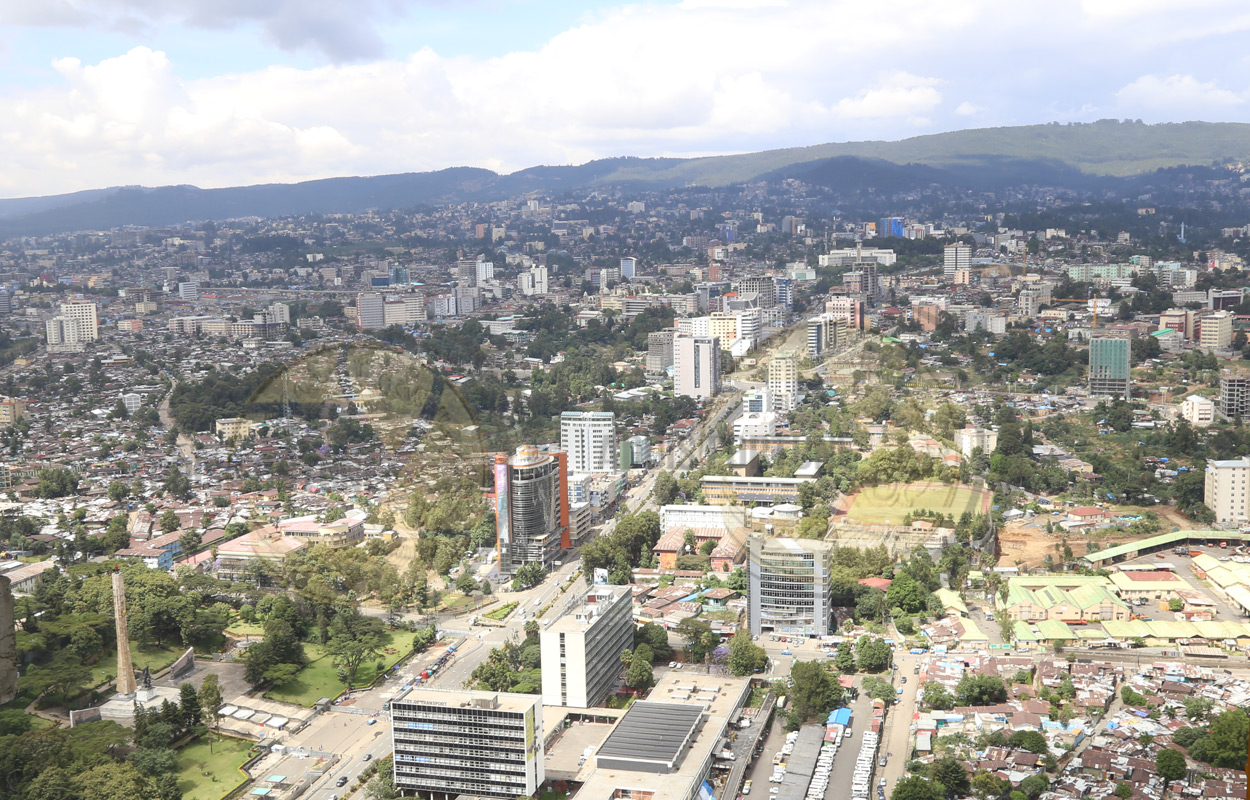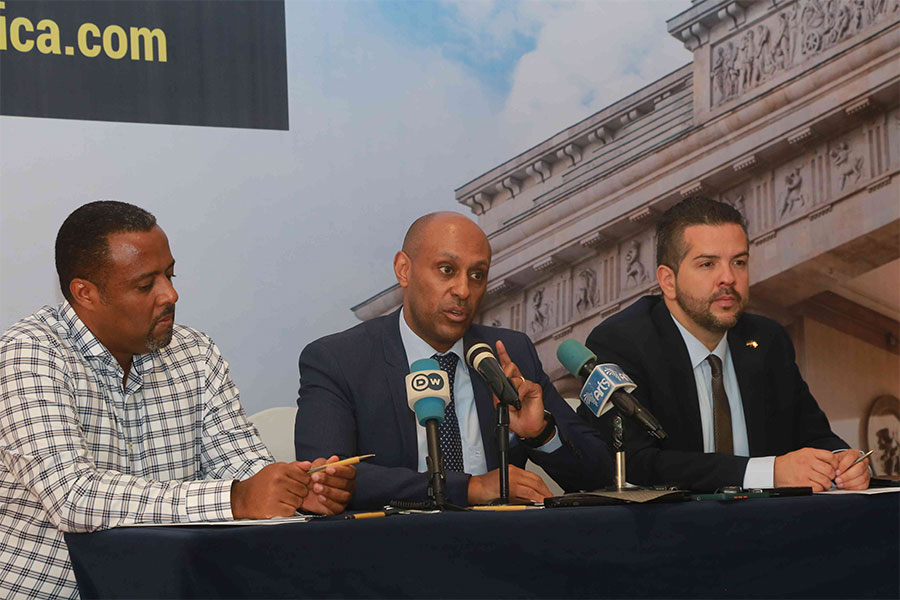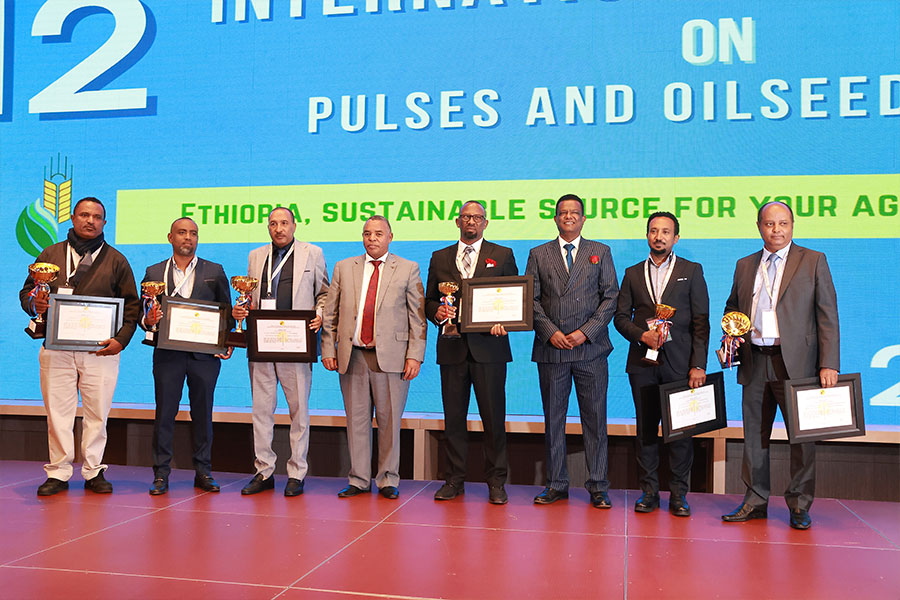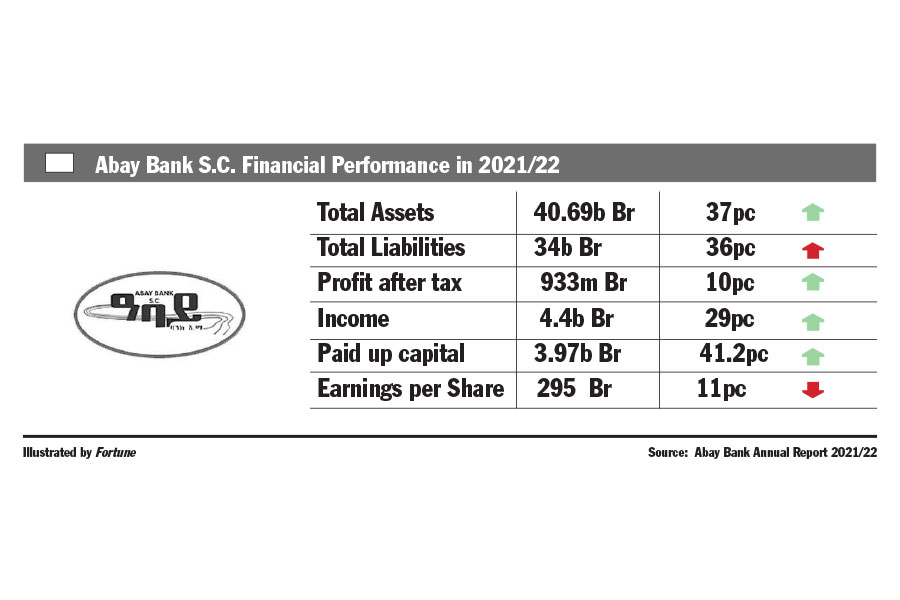
Radar | Nov 26,2022
Feb 13 , 2021
By Eden Sahle
For the rich and well-off, the new fashion is to travel overseas with a tourist visa to have a child in a developed country. It even has a name — birth tourism — and countries such as the United States have attempted to limit its prevalence.
But it should be clear. They do not go through such headaches just for their children to have different citizenship but to have a safe birth. This is even though there have been improvements in maternal and newborn care, especially in private hospitals, in Ethiopia.
Unfortunately, these are unaffordable for large sections of the population. Personalised care can rise to 60,000 Br, making it unaffordable for expecting couples. This high price tag on quality medical care for childbirth has become a headache, especially for new parents.
Of course, couples can head to public hospitals, which offer far cheaper options though with a non-comparable degree and quality of care.
The heavily subsidised public hospitals charge a little over 100 Br for a caesarean section delivery, while natural delivery costs couples just 60 Br. The latter is the average price of a cup of coffee at one of the upscale cafes in Addis Abeba’s downtown. Such costs have encouraged mothers to give birth at public health facilities, reducing the risk of death to them and stillbirths due to complications during delivery.
Nevertheless, public health centres are often overcrowded, lack proper medical equipment and have a shortage of medical practitioners working with midwives and nurses. It is common to see queues of expecting mothers waiting for a midwife or nurse to attend to their medical needs.
Public hospitals and the primary, secondary and tertiary level healthcare structure systems are also under alarming pressure with the short supply of medical equipment. The nation has a dire shortage of gloves, oxygen concentrators, obstetrical forceps, assisted vacuum delivery, suction apparatuses, surgical sets and uninterrupted electric power supply vital for safe delivery.
There are stories of health professionals who lack basic equipment having to become creative, such as using their phones as torch lights when faced with inadequate lighting. In rural areas, lack of facilities means that women sometimes have to give birth on the floor, unattended while waiting for medical attention.
As a result of all of these complications, childbirth continues to be a problem that puts women's lives at risk. There is some good news. During the past two decades, mother and child mortality rates have been reduced by half. Still, about half a percent of women undergoing labour pass away, and child mortality stands at around a staggering five percent. This makes Ethiopia one of the countries with the lowest health outcomes in the entire world.
The opportunity to bring every pregnant woman and newborn good quality care throughout pregnancy, childbirth and the postnatal period is still unfulfilled, even in urban areas. Ethiopia’s National Health Care Quality Strategy, supported by international partners such as UN agencies, has set a mission to prioritise mothers’ and children’s health to lessen the tragedy of death that has affected many families.
This could not come early enough for the many couples whose hopes were frustrated. For many families, their desire to be parents was extinguished by a death that would have been avoided in a more prosperous country. I can attest to this. A friend's brother was recently widowed after his wife passed away during childbirth. The child did not survive as well.
All of these challenges should reaffirm the convictions of policymakers that public health policies have a great length to go when it comes to maternal and child care. Investing more on medical facilities, equipment, human resources and skill development will increase efficiency, reducing mortalities and allowing clinicians to deliver quality medical care equitably. Good governance is a critical part of making such a health system properly function and expand rapidly.
Improved health strategies do not come cheap, undoubtedly. But they are incredibly vital investments that create a tremendous return by ensuring that human capital needed for economic development is healthy and in abundance. For couples, it will save them from trauma and gives hope that the crux of what makes a society — a family — is viable.
The needs of mothers, infants and practitioners should continue to be a top priority for policymakers and the Ministry of Health to save lives. Such improved care enhances the wellbeing of individuals, families and the country at large.
PUBLISHED ON
Feb 13,2021 [ VOL
21 , NO
1085]

Radar | Nov 26,2022

Fortune News | Dec 05,2018

Radar | Apr 03,2023

Radar | Mar 04,2023

Fortune News | Oct 06,2024

Radar | Oct 14,2023

Radar | Jan 01,2022

Radar | Nov 27,2023

Radar | Mar 06,2021

Fortune News | Mar 18,2023

My Opinion | 131507 Views | Aug 14,2021

My Opinion | 127863 Views | Aug 21,2021

My Opinion | 125841 Views | Sep 10,2021

My Opinion | 123471 Views | Aug 07,2021

Dec 22 , 2024 . By TIZITA SHEWAFERAW
Charged with transforming colossal state-owned enterprises into modern and competitiv...

Aug 18 , 2024 . By AKSAH ITALO
Although predictable Yonas Zerihun's job in the ride-hailing service is not immune to...

Jul 28 , 2024 . By TIZITA SHEWAFERAW
Unhabitual, perhaps too many, Samuel Gebreyohannes, 38, used to occasionally enjoy a couple of beers at breakfast. However, he recently swit...

Jul 13 , 2024 . By AKSAH ITALO
Investors who rely on tractors, trucks, and field vehicles for commuting, transporting commodities, and f...

Jun 28 , 2025
Meseret Damtie, the assertive auditor general, has never been shy about naming names...

Jun 21 , 2025
A well-worn adage says, “Budget is not destiny, but it is direction.” Examining t...

Jun 14 , 2025
Yet again, the Horn of Africa is bracing for trouble. A region already frayed by wars...

Jun 7 , 2025
Few promises shine brighter in Addis Abeba than the pledge of a roof for every family...

Jun 29 , 2025
Addis Abeba's first rains have coincided with a sweeping rise in private school tuition, prompting the city's education...

Jun 29 , 2025 . By BEZAWIT HULUAGER
Central Bank Governor Mamo Mihretu claimed a bold reconfiguration of monetary policy...

Jun 29 , 2025 . By BEZAWIT HULUAGER
The federal government is betting on a sweeping overhaul of the driver licensing regi...

Jun 29 , 2025 . By NAHOM AYELE
Gadaa Bank has listed 1.2 million shares on the Ethiopian Securities Exchange (ESX),...